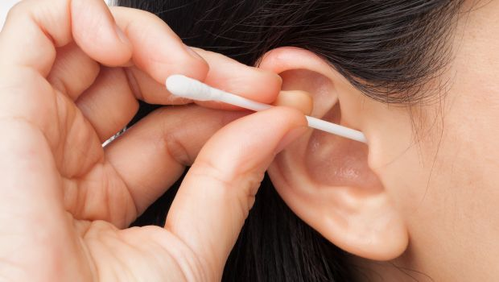

 Enroll in aural rehabilitation classes with your hearing-impaired spouse or friend.Some people would rather wait for their ears to pop on their own because they are not sure if popping their ears would be safe. Take turns speaking and avoid interrupting other speakers. Tactfully ask the hearing-impaired person if they understood you, or ask leading questions so you know your message got across. A puzzled look may indicate misunderstanding. Recognize that everyone, especially the hard-of-hearing, has a harder time hearing and understanding when ill or tired. Whenever possible, provide pertinent information in writing, such as directions, schedules, work assignments, etc. If you are giving specific information – such as time, place or phone numbers – to someone who is hearing impaired, have them repeat the specifics back to you. In a group setting, repeat questions or key facts before continuing with the discussion.
Enroll in aural rehabilitation classes with your hearing-impaired spouse or friend.Some people would rather wait for their ears to pop on their own because they are not sure if popping their ears would be safe. Take turns speaking and avoid interrupting other speakers. Tactfully ask the hearing-impaired person if they understood you, or ask leading questions so you know your message got across. A puzzled look may indicate misunderstanding. Recognize that everyone, especially the hard-of-hearing, has a harder time hearing and understanding when ill or tired. Whenever possible, provide pertinent information in writing, such as directions, schedules, work assignments, etc. If you are giving specific information – such as time, place or phone numbers – to someone who is hearing impaired, have them repeat the specifics back to you. In a group setting, repeat questions or key facts before continuing with the discussion. 
If the subject is changed, tell the hearing impaired person what you are talking about now. Acquaint the listener with the general topic of the conversation.If the hearing-impaired person has difficulty understanding a particular phrase or word, try to find a different way of saying the same thing, rather than repeating the original words over and over.Avoid situations where there will be loud sounds when possible. This reduced tolerance for loud sounds is not uncommon. Some people with hearing loss are very sensitive to loud sounds.Try to minimize extraneous noise when talking. Most hearing-impaired people have greater difficulty understanding speech when there is background noise.They may hear your voice, but still may have difficulty understanding some words. Be aware of possible distortion of sounds for the hearing-impaired person.If the hearing-impaired listener hears better in one ear than the other, try to make a point of remembering which ear is better so that you will know where to position yourself.Beards and moustaches can also interfere with the ability of the hearing impaired to speech read. while talking, your speech will be more difficult to understand. If you are eating, chewing, smoking, etc. Keep your hands away from your face while talking.Slow down a little, pause between sentences or phrases, and wait to make sure you have been understood before going on.
 Avoid talking too rapidly or using sentences that are too complex. This gives the listener a chance to focus attention and reduces the chance of missing words at the beginning of the conversation. Say the person's name before beginning a conversation. Shouting distorts the sound of speech and may make speech reading more difficult. Speak clearly, slowly, distinctly, but naturally, without shouting or exaggerating mouth movements. Not being able to see each other when talking is a common reason people have difficulty understanding what is said. Position yourself so that the light is shining on the speaker's face, not in the eyes of the listener. Face the hearing-impaired person directly, on the same level and in good light whenever possible. Even when the person with hearing loss utilizes hearing aids and active listening strategies, it is crucial that others involved in the communication process consistently use good communication strategies, including the following: Successful communication requires the efforts of all people involved in a conversation.
Avoid talking too rapidly or using sentences that are too complex. This gives the listener a chance to focus attention and reduces the chance of missing words at the beginning of the conversation. Say the person's name before beginning a conversation. Shouting distorts the sound of speech and may make speech reading more difficult. Speak clearly, slowly, distinctly, but naturally, without shouting or exaggerating mouth movements. Not being able to see each other when talking is a common reason people have difficulty understanding what is said. Position yourself so that the light is shining on the speaker's face, not in the eyes of the listener. Face the hearing-impaired person directly, on the same level and in good light whenever possible. Even when the person with hearing loss utilizes hearing aids and active listening strategies, it is crucial that others involved in the communication process consistently use good communication strategies, including the following: Successful communication requires the efforts of all people involved in a conversation.








 0 kommentar(er)
0 kommentar(er)
